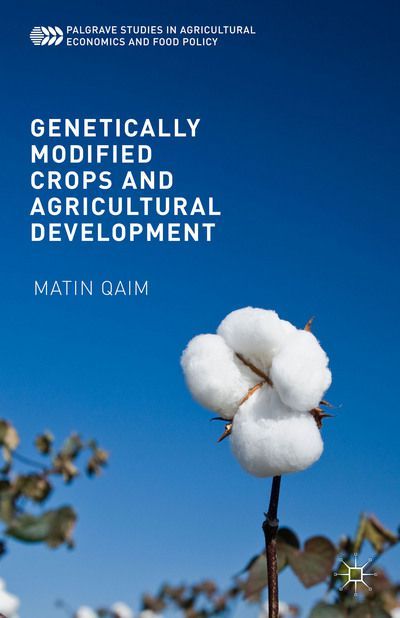Genetically Modified Crops and Agricultural Development
New book by Matin Qaim about 20 years of experience with genetically modified crops.

In spite of the rapid adoption of genetically modified (GM) crops in some countries, the use of this technology remains contentious. Public opposition and overregulation have become real threats to further developments in modern plant sciences. It is widely believed that GM crops are bad for human health, damage the environment, and hurt smallholder farmers in developing countries, but research shows that the opposite is true.
Genetically Modified Crops and Agricultural Development analyzes the impacts of current and possible future GM crop applications and shows that these technologies can contribute substantially to sustainable agricultural development and food security. Popular narratives about "Frankenfoods," "Genetic Contamination," and "Terminator Genes" are deconstructed. Continued opposition to technologies that were shown to be beneficial and safe entails unnecessary human suffering and environmental degradation. To advance GM crop innovations, better science communication, more integrity in public and policy debates, and streamlined regulatory approaches are required.
Matin Qaim is Professor of International Food Economics and Rural Development at the University of Goettingen, Germany. He has over 20 years of research experience in countries in Africa, Asia, and the Americas. He has published widely in academic journals and is a member of various scientific and policy advisory committees.
Read more at the publisher's page:


